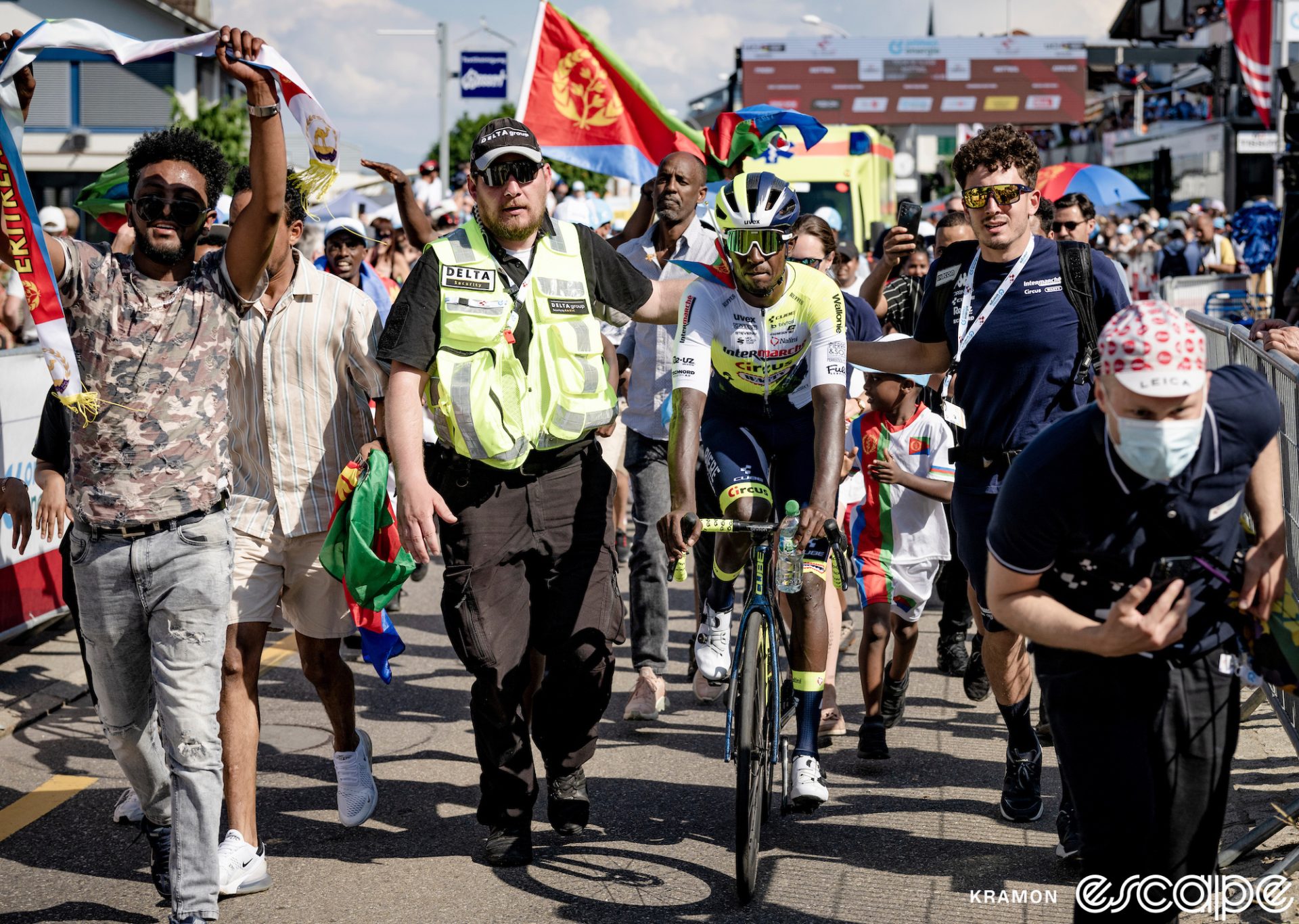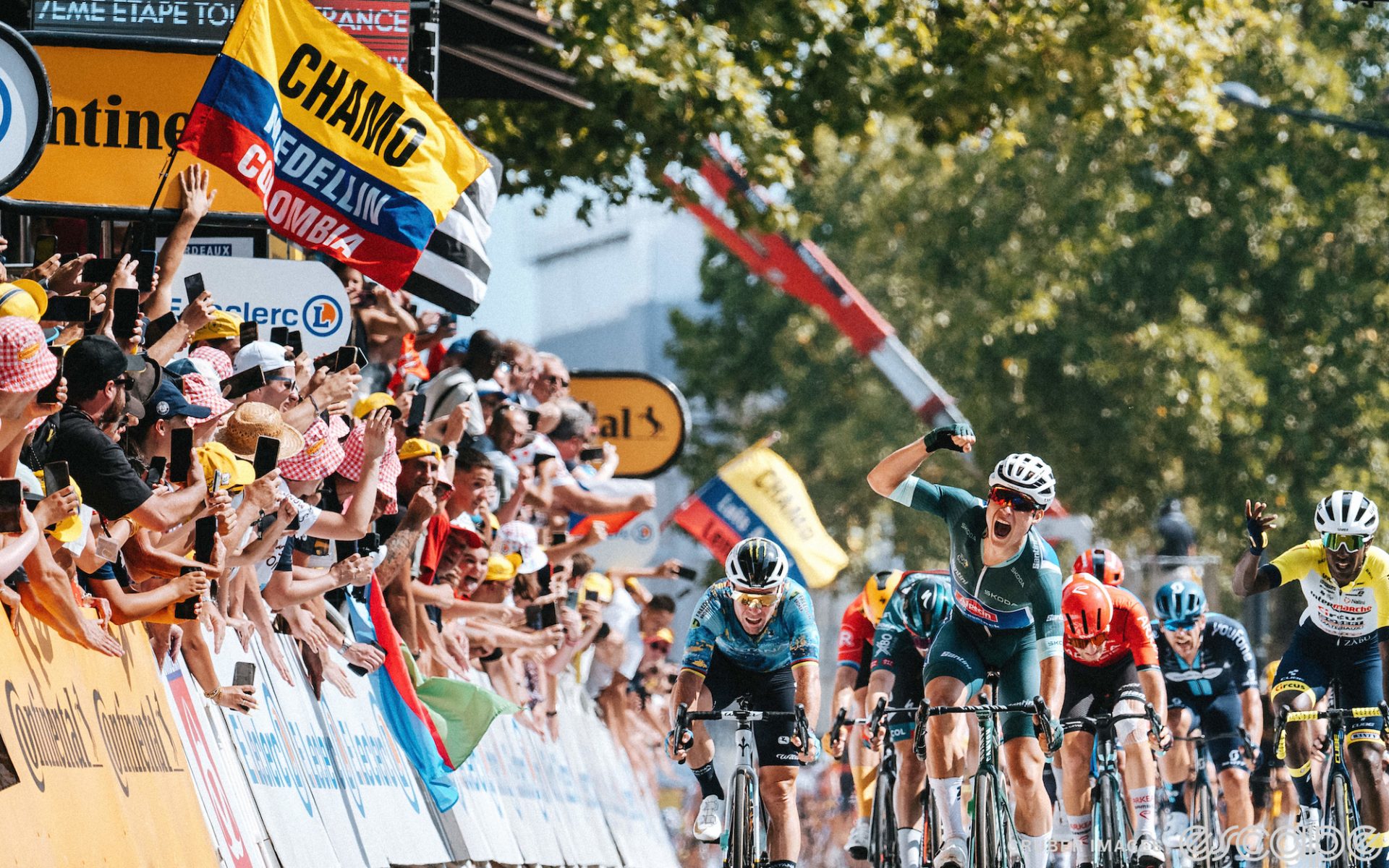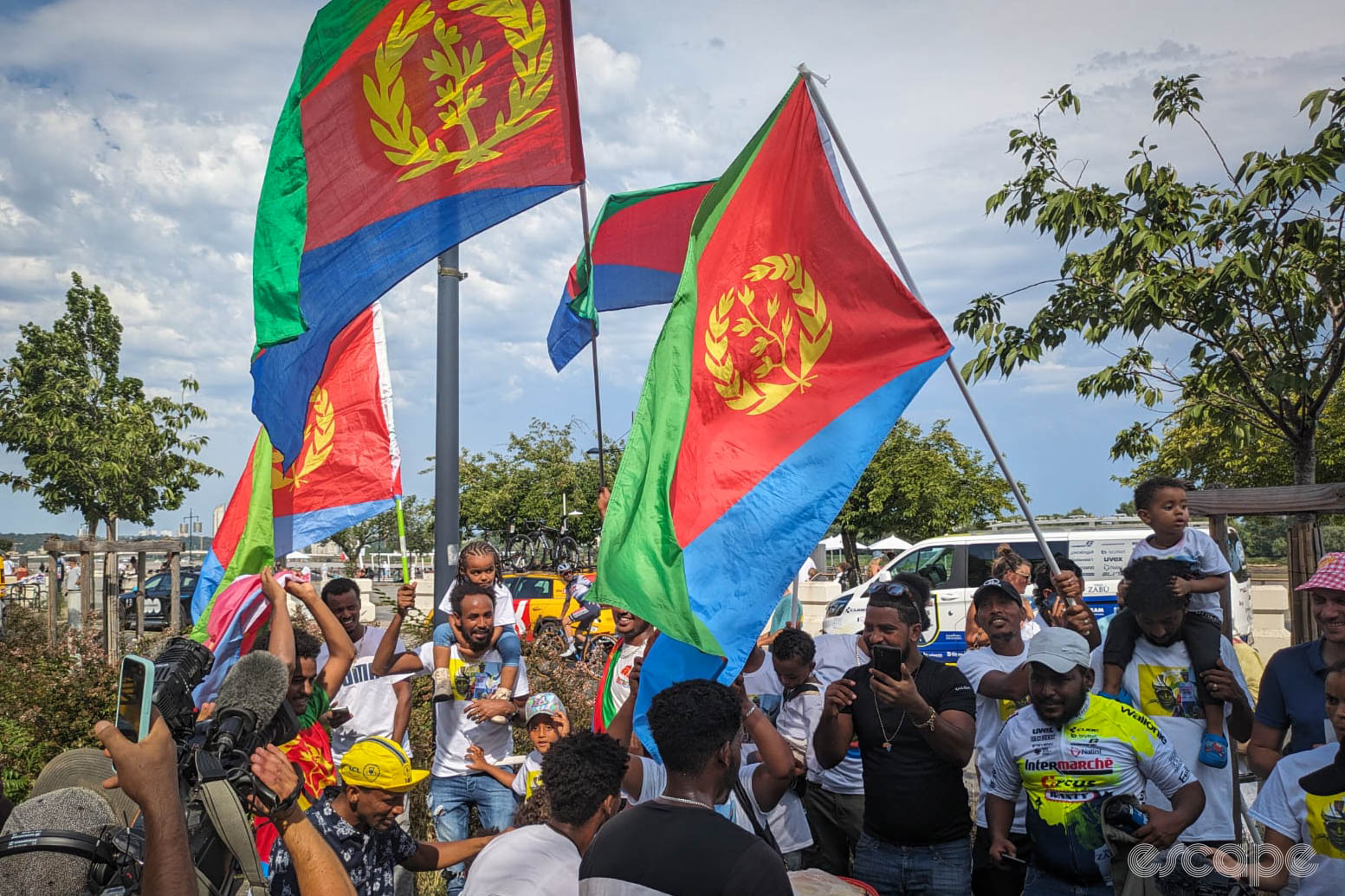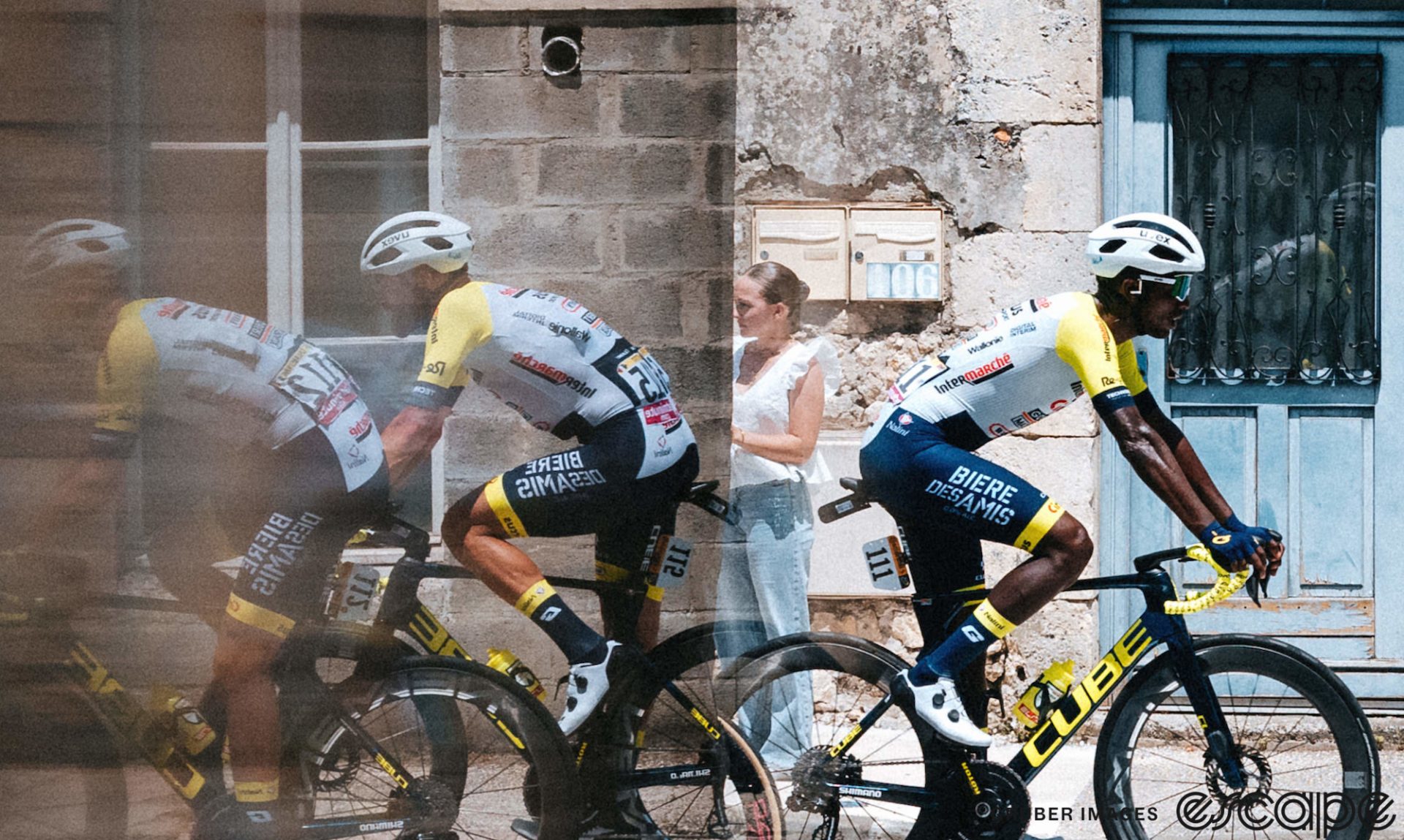Biniam Girmay is going the wrong way down the promenade in Bordeaux, a neon-dressed salmon swimming against the current of the Tour de France. His face is glistening with sweat and he’s looking surprisingly tense, as he swerves in and out of a string of used-up leadout men rolling to their team buses in the minute or two after the finish of stage 7. Spectators wander across tram tracks, team cars drive towards them, and speakers blare. Running around Girmay – one behind, one on either side – are three Intermarché–Circus–Wanty staffers. Behind his bodyguard is a group of 20 or so Eritrean fans, flags held aloft and yelling, sprinting after their hero.
It’s fucking chaos. And for Biniam Girmay, standard-bearer of Eritrean cycling, it’s probably like this all the time.
It’s Girmay’s first Tour de France, and he’s looking to add to his list of superlatives, which includes truly historic moments including being the first Black African to win a Classic, and the first Black African to win a stage at a Grand Tour (at last year’s Giro d’Italia). Girmay contains multitudes: just 23 years old, he’s such a potent talent that Intermarché–Circus–Wanty have locked him down until the end of 2026. The Eritrean diaspora across Europe show up for him at almost every race, and today, in Bordeaux, the turn-out is substantial.

The Eritreans I’m trailing are 100 metres or so in front of me, and then, they’ve lost Girmay in the crowd. A minute or so later, a yellow-lanyarded official is pointing them back down toward the Intermarché bus, so we all turn around. Flags moving back in the flow of the current of the Tour de France, a 500 metre or so walk past bus after bus. A huge scrum outside Astana for the story of the day. A smaller, more resigned one outside Soudal Quick-Step. Eventually we arrive where we think we need to be.
Chants break out. Men jump up and down with kids on their shoulders. Women with perfectly spaced braids stand smiling, their kids in prams. Intermarché have a camera guy who’s filming the whole scene, and one of the Eritrean guys tries to act something out for him. Twice he’s interrupted by team cars slowly pushing their way through down the narrow one-lane width that’s filled with Girmay enthusiasts. Finally he gets an uninterrupted run, twirling one hand around like he’s winding up a David-and-Goliath style sling. “Veni,” he yells, releasing an imaginary stone. “Vini,” he says, releasing another. “Bini!” One last stone sails out of its sling.

Today, Girmay didn’t slay the sprint Goliaths of the Tour de France, but he came pretty close, finishing in third. Intermarché were hoping for more, lodging a complaint – along with Astana – with the UCI commissaires for a perceived slight from stage-winning Jasper Philipsen (Deceuninck-Alpecin). A tense conversation in a trailer later and the result stands – third, after almost ending up in the barriers. Close, but not quite there.
At any rate, for the Eritrean fans here in Bordeaux, the result is secondary. I talk to a couple as they dance and ululate and sing and sway, hoping to find some overlap in the middle of a linguistic Venn diagram of Tigrinya, French and English. There are two things that get enthusiastic nods and yesses: the concept of “community”, and the fact that Bini is “number one”.
An Intermarché press officer tells us that Girmay has been selected for random doping control and won’t be coming back to the bus – the press won’t get a chance to talk to the Eritrean star today. I start walking back down the long finishing straight, before looking back one last time.
Sure enough, the Eritreans are still there, singing and dancing and chanting for their star.

What did you think of this story?

